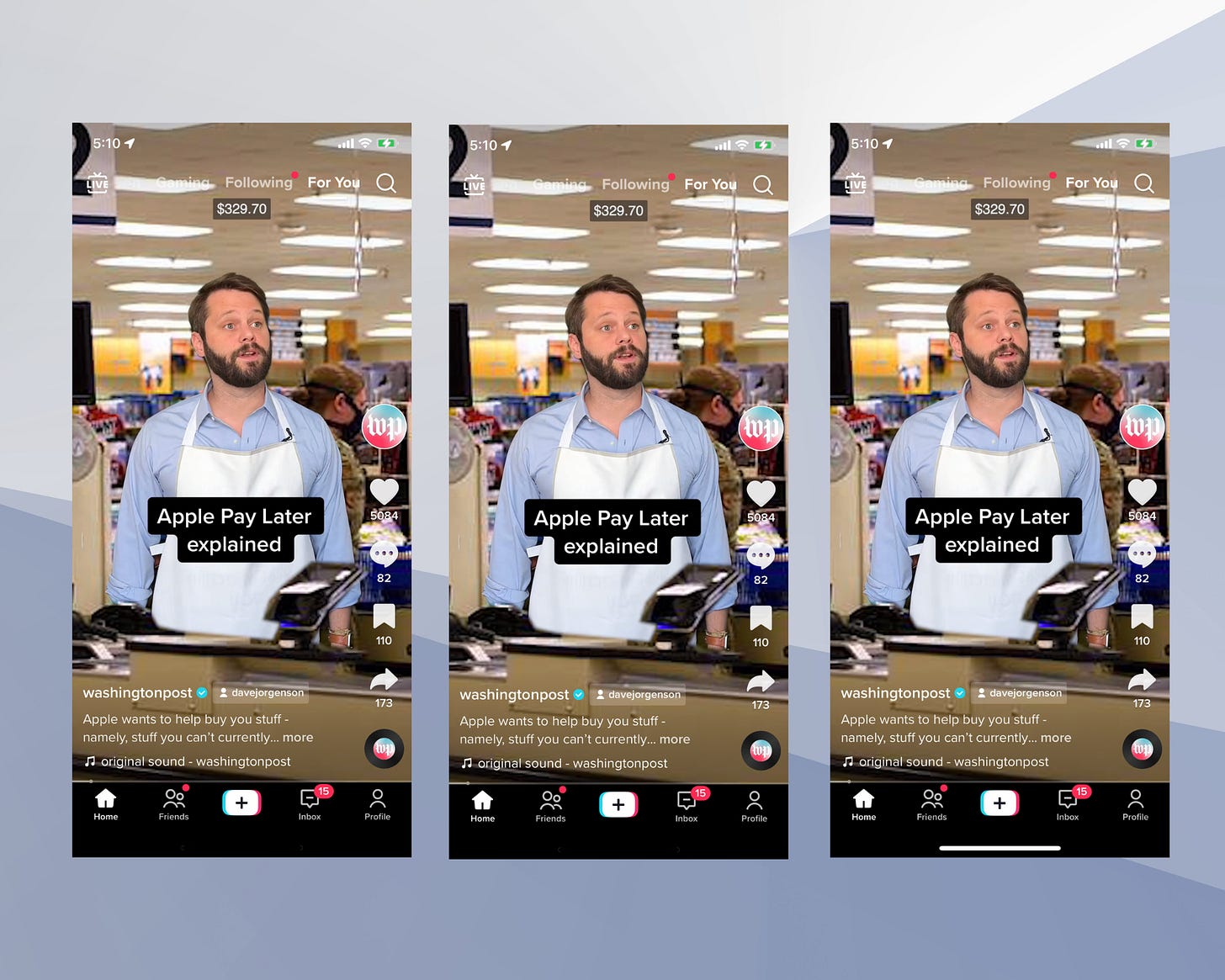The Homogenization of Social Media Is Going To Have Some Real Consequences
TikTok, Instagram, Facebook, and YouTube are all starting to look the same. That’ll change how they make money and compete.
Social media feeds are melting together. Instead of using separate apps for friends, family, news, culture, and entertainment, you can now see it all on Facebook, YouTube, TikTok, and Instagram. Open any, and you'll likely be watching vertical looping videos, almost assuredly from people you don't follow. The content is so similar it's easy to forget wh…


